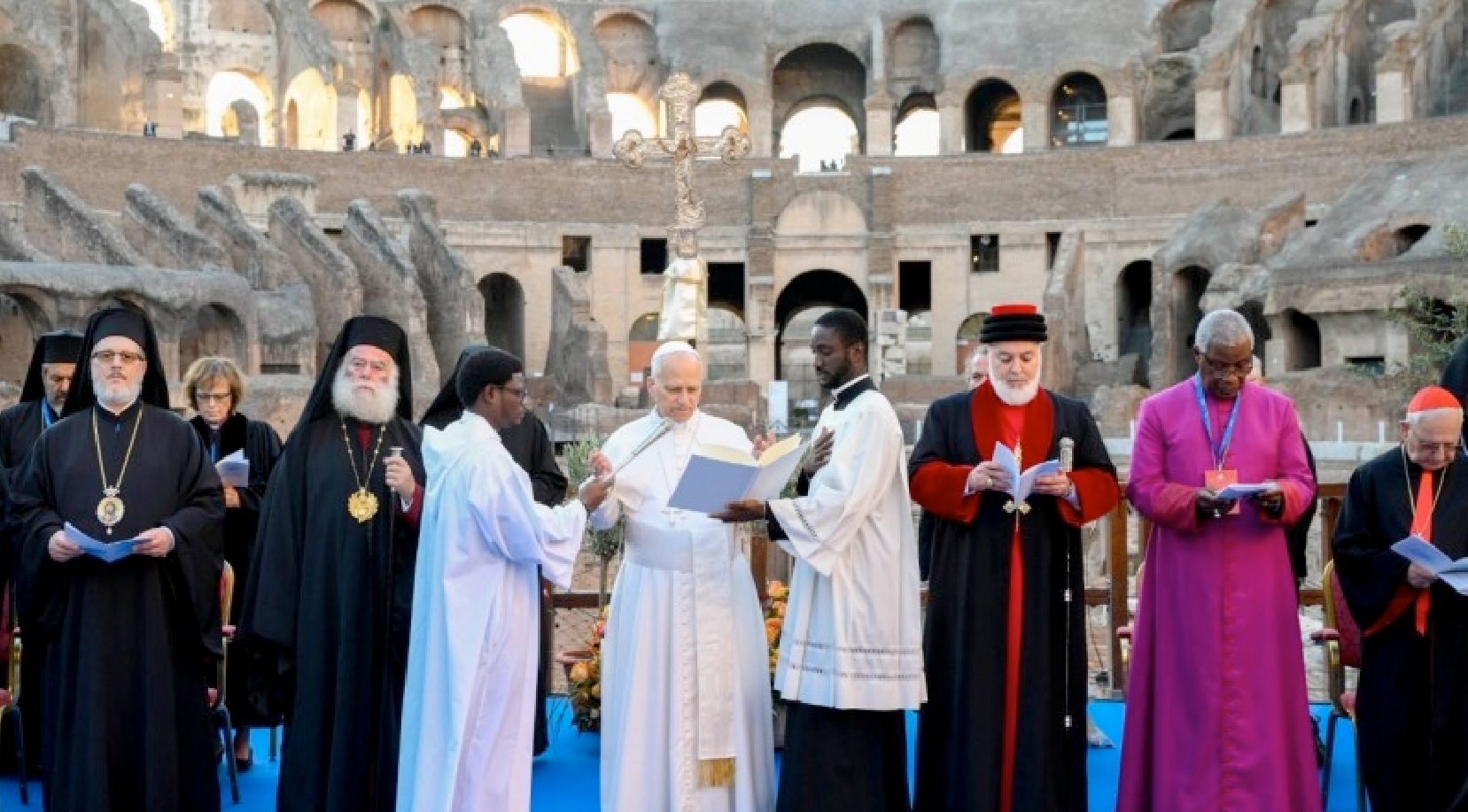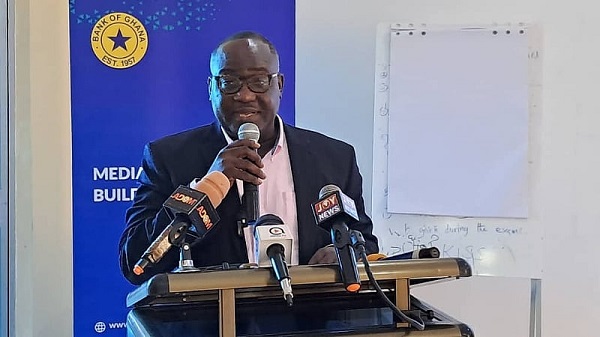Copyright zenit

(ZENIT News / Rome, 10.28.2025).- On Tuesday, October 28, Pope Leo XIV met with leaders of the major religious traditions at the Colosseum in Rome in the context of the International Meeting for Peace. This day coincided with the 60th anniversary of the Second Vatican Council’s Declaration Nostra aetate on the relationship of the Catholic Church with other religious denominations. Below is the English translation of the Pope’s words: Your Holiness, Your Beatitudes, Distinguished Authorities representing the Christian Churches and the great World Religions, We have prayed for peace according to our diverse religious traditions, and we are now gathered together to proclaim a message of reconciliation. Conflicts are present in all parts of life, but war is no help in dealing with them or finding solutions. Peace is a constant journey of reconciliation. I thank you for coming here to pray for peace and for showing the world just how important prayer is. The human heart must be open to peace. It is through meditation that we open our hearts, and in prayer that we go beyond ourselves. We recollect ourselves in order to go beyond ourselves. This is our witness: offering the immense treasures of ancient spiritualities to contemporary humanity. The world is thirsting for peace. We need a true and sound era of reconciliation that puts an end to the abuse of power, displays of force and indifference to the rule of law. Enough of war, with all the pain it causes through death, destruction and exile! Gathered here today, we express not only our firm desire for peace, but also our conviction that prayer is a powerful force for reconciliation. Those who practice religion without prayer run the risk of misusing it, even to the point of killing. Prayer is a movement of the spirit and an opening of the heart. It is not shouting words, displaying behavior or religious slogans against God’s creatures. We have faith that prayer changes the course of history. May places of prayer be tents of encounter, sanctuaries of reconciliation and oases of peace. On 27 October 1986, Saint John Paul II invited religious leaders from around the world to Assisi to pray for peace, imploring them: let us never again go against each other, but stand alongside each other. This historic event marked a turning point in interfaith relations. Year after year, these meetings of prayer and dialogue have continued in the “spirit of Assisi,” creating a climate of friendship among religious leaders and welcoming many appeals for peace. Today, it seems that the world has gone in the opposite direction, but we embrace the challenge of Assisi and the awareness of our shared task and responsibility for peace. I thank the Community of Sant’Egidio and all the Catholic and non-Catholic organizations, which keep this spirit alive, even going against the tide. For the Catholic Church, prayer in the “spirit of Assisi” is based on the solid foundation set out in the Second Vatican Council’s Declaration Nostra Aetate, namely, the renewal of the relationship between the Catholic Church and other religions. Today we celebrate the 60th anniversary of the promulgation of this Declaration, which took place on 28 October 1965. Together we reaffirm our commitment to dialogue and to fraternity, a commitment desired by the Council Fathers that has borne much fruit. In the words of the Council: “We cannot truly pray to God as Father of all if we treat any people as other than sisters and brothers, for all are created in God’s image” (Declaration on the Relationship of the Church to Non-Christian Religions Nostra Aetate, 5). All believers are brothers and sisters. And religions, as “mothers,” must encourage peoples to treat each other as family, not as enemies. For “humanity forms but one community. This is so because all stem from one stock” (ibid., 1). Last year, when you met in Paris, Pope Francis wrote to you, stating: “We must keep religions from giving in to the temptation to become a means of fueling forms of nationalism, ethnocentrism and populism. Wars only escalate. Woe to those who try to drag God into taking sides in wars!”[1] I would like to make these words my own and firmly repeat them: war is never holy; only peace is holy, because it is willed by God! In the power of prayer, with hands raised to heaven and open to others, we must ensure that this period of history, marked by war and the arrogance of power, soon comes to an end, giving rise to a new era. We cannot allow this period to continue. It shapes the minds of people who grow accustomed to war as a normal part of human history. Enough! This is the cry of the poor and the cry of the earth. Enough! Lord, hear our cry! The Venerable Giorgio La Pira, a witness to peace, wrote the following to Saint Paul VI while serving in politics during challenging times: “We long for a different era of world history: the era of negotiation, the era of a new world without war.”[2] Today, more than ever, these words can serve as a guide for humanity. The culture of reconciliation will overcome the current globalization of powerlessness, which seems to tell us that another era is impossible. Yes, dialogue, negotiation and cooperation are capable of addressing and resolving the tensions that arise in situations of conflict. They must do so! The necessary forums and people exist. “To put an end to war is a solemn duty before God incumbent on all those holding political responsibilities. Peace is the priority of all politics. God will ask an accounting of those who failed to seek peace, or who fomented tensions and conflicts. He will call them to account for all the days, months and years of war.”[3] As religious leaders, this is the heartfelt appeal that we make to those in positions of government. We share the desire for peace for all peoples. We are the voice of those who are not heard and the voiceless. We must “dare peace”! Even if the world turns a deaf ear to this appeal, we are certain that God will hear our prayer and the cries of so many who suffer. God wants a world without war. He will free us from this evil! Thank you for reading our content. If you would like to receive ZENIT’s daily e-mail news, you can subscribe for free through this link.



